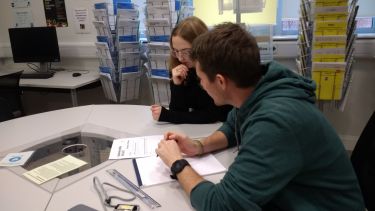SPSS resources
A list of links and training resources to help students and staff use SPSS.
What is SPSS?
SPSS is a widely used statistical software package. It has an intuitive interface so you can be up and running fairly quickly. SPSS looks similar to a spreadsheet but the software is designed for data analysis rather than everyday use so it is much more suitable for research.
SPSS requires a licence, which has been paid for by the university.
Installing SPSS
Using from IT services, you can follow the links to get SPSS installed. If you have any problems with installation, we’d recommend you
First Steps in SPSS
gives a great introduction to SPSS and setting up your variables. It would be a good place to start if you’ve never opened SPSS before.
from Kent State University is a great guide to using the Data View window, entering data into SPSS and importing datasets.
These resources will help you get started with your dataset by summarising your data:
Guide to summarising categorical variables in SPSS (pdf)
Guide to summarising continuous data in SPSS (pdf)
These guides will get you started to data display in SPSS by making bar charts:
Simple bar charts (pdf)
Panelled bar charts (pdf)
Clustered bar charts (pdf)
Stacked bar charts (pdf)
Hypothesis Tests in SPSS
Here are some guides from Laerd Statistics to help you carry out some statistical analyses in SPSS:
(Also Called Dependent T-Tests)
(also called Independent T-Tests) (pdf)
The above links are designed to help you carry out these analyses in SPSS. If you would like to learn what these analyses are and what they do, check out our resources or
Where to go next
Help from MASH
We run workshops in SPSS which you can book through our .
We also have bookable one-to-one appointments and drop in sessions. If you would like help getting going you can .
Useful websites
There are many online resources where you can learn SPSS for free. The university also provides a number of subscriptions to Linkedin Learning for staff and students where you can access courses like .
There are some useful and on the main

Book a 1:1 appointment or workshop
Would you like to explore a maths or stats topic in greater depth? Why not book a 1:1 with an advisor or a workshop (current students only).
